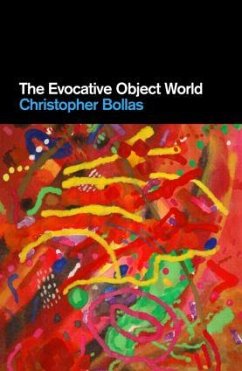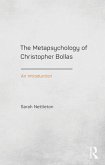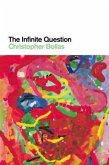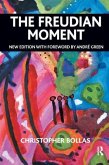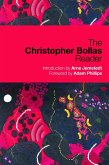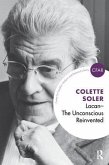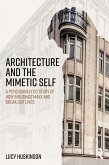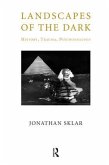In The Evocative Object World Christopher Bollas builds on Freud's account of dream formation, combining it with perceptive clinical, theoretical and cultural insights to show how the psychoanalytical method can provide a rich understanding of what has traditionally been regarded as 'the outside world'.
Moving from the fundamentals of the free associative technique, through an examination of how architecture and the built environment interact with individual and societal dream life, Bollas extends the work of psychoanalysis beyond relations with literature and culture to the actual objects which surround us.
As with the evocative external structures of our environment, Bollas describes how the family, with its inherited genetic structures, likewise constitutes a pre-existent unconscious formation into which we are placed, and demonstrates that there is more to this multifaceted unit than the traditional psychoanalytical notion of the Oedipal triangle.
In the process, Bollas also provides a fascinating and comprehensive review of how his own theories have evolved over the past three decades: a period during which, in his view, Western society has increasingly neglected - or even become actively hostile towards - unconscious life.
Throughout this engaging and accessible text, Bollas rejects the simplistic notion that mental life is unconsciously determined. Instead he provides a compelling study of how unconscious life is shaped by a diverse array of both internal and external factors, and how the work of the Freudian pair provides the best means to gain insight into our dreams, our surroundings, our families - and our mental life as a whole.
Moving from the fundamentals of the free associative technique, through an examination of how architecture and the built environment interact with individual and societal dream life, Bollas extends the work of psychoanalysis beyond relations with literature and culture to the actual objects which surround us.
As with the evocative external structures of our environment, Bollas describes how the family, with its inherited genetic structures, likewise constitutes a pre-existent unconscious formation into which we are placed, and demonstrates that there is more to this multifaceted unit than the traditional psychoanalytical notion of the Oedipal triangle.
In the process, Bollas also provides a fascinating and comprehensive review of how his own theories have evolved over the past three decades: a period during which, in his view, Western society has increasingly neglected - or even become actively hostile towards - unconscious life.
Throughout this engaging and accessible text, Bollas rejects the simplistic notion that mental life is unconsciously determined. Instead he provides a compelling study of how unconscious life is shaped by a diverse array of both internal and external factors, and how the work of the Freudian pair provides the best means to gain insight into our dreams, our surroundings, our families - and our mental life as a whole.
"I very much enjoyed reading these books [referring to both companion volumes]. There is something in the form of Bollas's writing - in his character - that permeates these texts: a curiosity and passion for the unconscious life that never loses sight of its complexity. I wish that these books had existed while I was still in my training seminars, and I can only hope that they are going to be read both by students and experienced analysts over and over again. They contain a world to discover, much like unconscious life itself. They invite and stimulate the reader to deepen his or her unconscious creativity. The books have stimulated my curiosity and made me eager to try and learn more from my patients." - Anna Sylvén, The Scandinavian Psychoanalytic Review, Vol. 31, 2008
"...the experience of reading these books [referring to both companion volumes] is quite extraordinary. Beautifully written and evocatively simple, they incite the imagination and, mirroring his proposed psychoanalytic method, seem to invite the reader to muse and daydream... Perhaps Bollas' most important contribution to clinical practice is that he reminds therapists to listen, to both the significant and the seemingly insignificant, and to get lost in the unconscious process at least sufficiently to evoke the object world and to keep questioning." - Carol Long, Psycho-analytic Psychotherapy in South Africa, Vol. 17 No. 1, 2009
"...the experience of reading these books [referring to both companion volumes] is quite extraordinary. Beautifully written and evocatively simple, they incite the imagination and, mirroring his proposed psychoanalytic method, seem to invite the reader to muse and daydream... Perhaps Bollas' most important contribution to clinical practice is that he reminds therapists to listen, to both the significant and the seemingly insignificant, and to get lost in the unconscious process at least sufficiently to evoke the object world and to keep questioning." - Carol Long, Psycho-analytic Psychotherapy in South Africa, Vol. 17 No. 1, 2009
"I very much enjoyed reading these books [referring to both companion volumes]. There is something in the form of Bollas's writing - in his character - that permeates these texts: a curiosity and passion for the unconscious life that never loses sight of its complexity. I wish that these books had existed while I was still in my training seminars, and I can only hope that they are going to be read both by students and experienced analysts over and over again. They contain a world to discover, much like unconscious life itself. They invite and stimulate the reader to deepen his or her unconscious creativity. The books have stimulated my curiosity and made me eager to try and learn more from my patients." - Anna Sylvén, The Scandinavian Psychoanalytic Review, Vol. 31, 2008
"...the experience of reading these books [referring to both companion volumes] is quite extraordinary. Beautifully written and evocatively simple, they incite the imagination and, mirroring his proposed psychoanalytic method, seem to invite the reader to muse and daydream... Perhaps Bollas' most important contribution to clinical practice is that he reminds therapists to listen, to both the significant and the seemingly insignificant, and to get lost in the unconscious process at least sufficiently to evoke the object world and to keep questioning." - Carol Long, Psycho-analytic Psychotherapy in South Africa, Vol. 17 No. 1, 2009
"...the experience of reading these books [referring to both companion volumes] is quite extraordinary. Beautifully written and evocatively simple, they incite the imagination and, mirroring his proposed psychoanalytic method, seem to invite the reader to muse and daydream... Perhaps Bollas' most important contribution to clinical practice is that he reminds therapists to listen, to both the significant and the seemingly insignificant, and to get lost in the unconscious process at least sufficiently to evoke the object world and to keep questioning." - Carol Long, Psycho-analytic Psychotherapy in South Africa, Vol. 17 No. 1, 2009

